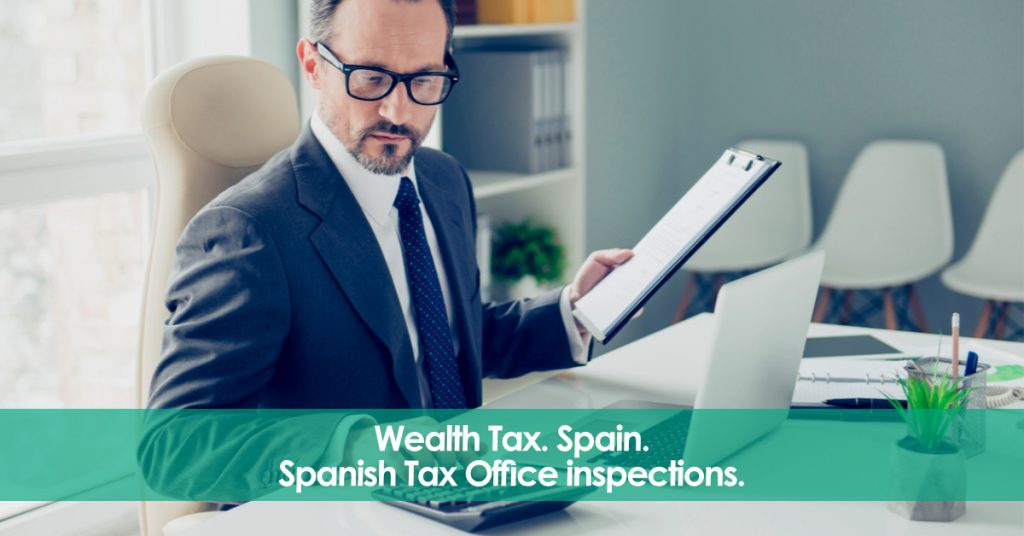As we have mentioned before, non-resident non-residents who have assets in Spain have a series of obligations with the Spanish Tax Agency that it is best to comply with in order to avoid problems. Non-Resident Annual Income Tax. Property tax. Etc. In today’s article we analyse Wealth Tax and the wave of tax inspections that the Spanish Tax Authorities have been carrying out recently.
Wealth Tax: what exactly does it consist of?.
This tax charges the net wealth of individuals. In other words, all the assets and rights (with economic content) that a person owns. However, it is possible to deduct personal charges, encumbrances, debts, and obligations for which the owner is liable. For example, if you bought a property in Spain worth €1,000,000 but did so by means of a mortgage, you could deduct the amount of the mortgage.
Who is obliged to file it?
The tax is payable by individuals who:
– Once deductions or allowances have been applied, there is a tax liability to be paid.
– Have assets or rights worth more than €2,000,000.
When is the tax due?.
Wealth Tax is accrued on 31 December of each year. In other words, this date is the starting point for calculating how much tax is payable.
What is the deadline for presenting the tax return?.
The self-assessment of Wealth Tax is filed in the year following its accrual, within the same period as Personal Income Tax. Therefore, the wealth tax for the year 2023 must be filed from April 3rd to July 1st 2024.
What assets and rights must be declared?
In general terms, the assets and rights that must be included in the declaration can be summarised as follows: Real estate assets (rural or urban). Economic activities. Bank accounts and deposits. Securities traded and not traded on organised markets. Life insurance. Temporary or life annuities. Jewellery, furs, vehicles, works of art and antiques. Intellectual property. Industrial property. Administrative concessions. Administrative concessions, etc.
Provided that they are goods or rights that can be exercised or must be fulfilled in Spain.
What is the exempt minimum and how much is it for Non-Residents?.
The minimum exempt amount is the amount below which the tax does not have to be declared or paid. This threshold is different depending on whether state or regional regulations are applied. Non-Residents in Spain have the possibility to choose between the two regulations. Currently, state regulation provides for a minimum exempt of €700,000, whereas in the Valencian Community (for instance) it is of only €500,000.
Which administration is responsible for the Wealth Tax of Non-Residents?.
The revenue from Wealth Tax is transferred to the regional administrations. However, in the case of Non-Residents, as there is no point of connection with any region, the competent body is the State Tax Administration Agency.
Conclusions.
Facing tax obligations in Spain can be daunting, but you don’t have to handle it alone. At White-Baos Lawyers, we’re here to simplify your path to tax compliance. With a team of tax law experts, we can help you navigate the complex world of Wealth Tax. Do not hesitate to contact us.
The information provided in this article is not intended to be legal advice, but merely conveys information relating to legal issues.
Carlos Baos (Lawyer)
White & Baos.
Tel: +34 966 426 185
E-mail: info@white-baos.com
White & Baos 2024 – All Rights Reserved.
